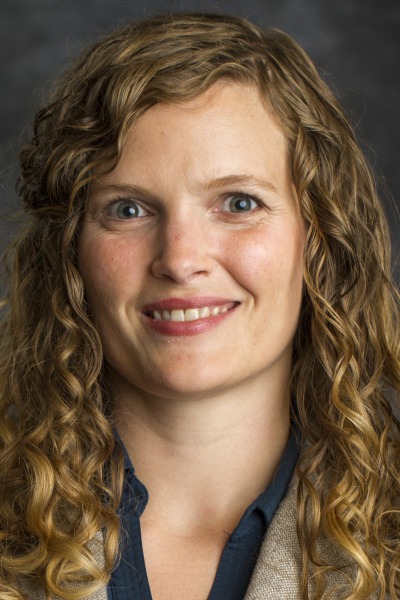Christensen Wins Grant for Dwarf Galaxy Research
Congratulations to Associate Professor of Physics Charlotte Christensen, who was recently awarded a grant of $66,000 from the Research Corporation for Science Advancement (RCSA).
Christensen is part of an RCSA-funded, three-year science dialogue (Scialog®) initiative with about 50 other scientists. Titled “Early Science with the Legacy Survey of Space and Time,” the program is designed to advance the foundational science needed to realize the full potential of the Vera C. Rubin Observatory’s upcoming Legacy Survey of Space and Time (LSST). The Rubin Observatory’s LSST Camera is the world’s largest digital camera, which is expected to start full operations in fall 2025. In time, the observatory will be able to survey the entire sky in just three nights.
“LSST will provide astronomers with a tremendous amount of data, and we are hard at work preparing to sift through it,” Christensen says. “We anticipate that among that data will be faint traces of tiny galaxies accreted onto slightly more massive companion galaxies. I am excited to work with colleagues at the University of Washington and Dartmouth College to prepare to detect the traces of these galactic building blocks.”
Christensen, along with colleagues Nora Shipp (University of Washington) and Burçin Mutlu-Pakdil (Dartmouth College), will pursue a project titled “Dwarf Debris and Dark Matter: Searching for Evidence of Hierarchical Formation in the Stellar Halos of Dwarf Galaxies.” Each investigator received a grant of $66,000, bringing the total funding for this project to $198,000.
RCSA, along with the Heising-Simons Foundation, The Brinson Foundation, the Leinweber Foundation, and independent philanthropist Kevin Wells (executive director of the Stanford Institute for Theoretical Physics) provide the funding for the grants.
The Scialog program allows investigators at predominantly undergraduate institutions like Grinnell to access support from the partnering funders, most of which rarely, if ever, support investigators at liberal arts colleges.
Learn more about the “Early Science with the LSST,” Scialog’s first round of grants, and the collaborative process it uses to help its participants forge productive partnerships on the RCSA website.


